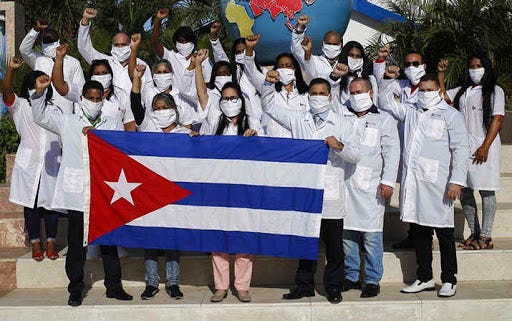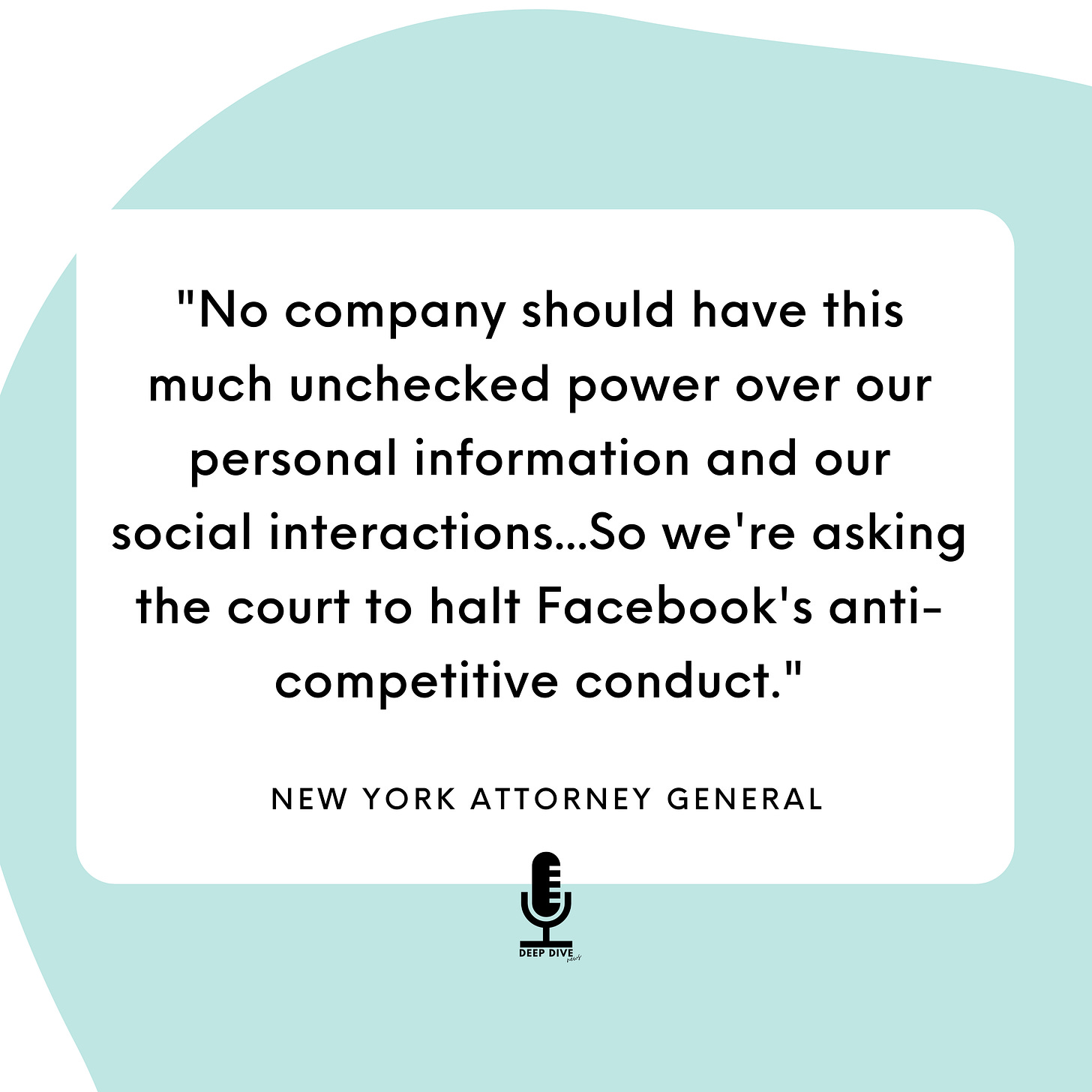Escalating Oz-China tensions, Morocco and Israel normalise ties, Cuba's 'white coat army' and a new lawsuit against Facebook
7 - 13 December 2020
A FRACTURED RELATIONSHIP
The diplomatic row between Australia and China keeps getting uglier.
Following a fresh round of punitive measures on export goods, the Australian trade minister slammed China for undermining the "letter and spirit" of their free-trade agreement. Beijing has targeted a range of products - including beef, barley, wine, lobster, cotton and timber - either through heavy tariffs or customs restrictions.
The imposition of duties of up to 212% on Australian wine basically makes the alcohol unsellable in China. Beijing's claim: Australia improperly subsidises its wine industry, allowing cases to be sold at discount prices. Although Canberra disputes the allegation, the impact of the tariffs will certainly be painful. Several Australian wineries are reportedly considering job cuts or fewer contracts with growers in the new year.
Beijing's firm stance on Australian agriculture exports could see other foreign suppliers step in to satisfy Chinese demand. For instance, Argentina and Brazil are ready to sell more beef, while Russia might increase the volume of barley it sends across the border.
But despite the rising tensions, it's worth noting that one vital - and extremely profitable - material remains untouched. Australian iron ore shipments to China aren't being impeded; in fact, they're actually booming. The reasons: China's steel sector is expanding, and Australia is a robust and and geographically convenient producer.
Nonetheless, the current predicament is very stressful for Australian businesses. There are questions about how quickly they can pivot away from Chinese consumers to different markets, and whether Scott Morrison's government overplayed its hand by criticising Beijing amid a pandemic-triggered downturn.
NORMALISING TIES
Even though the 45th administration is on the way out, Donald Trump and Jared Kushner continue to broker deals as part of the Abraham Accords.
On Thursday, the White House announced that Morocco would become the latest Arab League member state to establish full diplomatic relations with Israel. It follows similar agreements made by the UAE, Bahrain and Sudan in recent months.
Morocco, which was previously home to a large Jewish population, already has informal ties with Israel, and the two countries are not engaged in any conflict.
The main focus of this peace initiative, however, doesn't seem to be Israel or the Palestinians - instead diplomats are concerned about the deal's inclusion of another disputed territory.
In a departure from US foreign policy, Trump says Washington will recognise Morocco's claim over Western Sahara. The sovereignty of the former Spanish colony is a controversial subject as well as the source of a long-running conflict. Furthermore, Western Sahara is believed to have significant oil reserves and mineral deposits.
The Republican Senator leading the US Armed Services Committee said the “rights of the Western Saharan people have been traded away.” Joe Biden's transition team has yet to comment on the developments.
AN UNLIKELY EXPORT
Healthcare professionals and frontline workers are rightly being celebrated as the heroes of 2020. But one little known fact is that Cuba has deployed hundreds of medics overseas to assist in the fight against Covid-19.
As the country's doctors arrived in far-flung places like Italy, Qatar and South Africa, images and stories of their contributions shone a light on Cuban medical internationalism.
The policy began in the 1960s when Havana decided to send "an army of white coats" to help tackle crises and natural disasters as a gesture of solidarity - and to gain allies.
Under Fidel Castro, Cuba developed an efficient and free universal healthcare system. The island still boasts one of the highest physician to patient ratios in the world.
However, the programme is not without its critics. Human Rights Watch has accused Havana of imposing "draconian rules" on doctors on foreign missions. Plus, some governments are against leasing Cuban medical brigades as the service is a significant revenue stream for the Communist regime.
NOT MAKING FRIENDS
Did Facebook break antitrust laws to become big, powerful and domineering? Various regulators in the United States think so.
On Wednesday, the Federal Trade Commission and 48 attorneys general accused Facebook of buying up rivals in order to illegally crush competition. In their lawsuits, they detail allegedly nefarious actions taken by the tech titan, and call for some acquisitions to be unwound.
The federal and state agencies point to Facebook's purchases of Instagram and WhatsApp in particular, which say they gave Mark Zuckerberg & co. too much control of the market.
Their complaints reveal the findings of in depth research and investigations. For example, in an email from 2008, Zuckerberg wrote, "It is better to buy than compete".
Facebook denies the claims and highlights the growth of TikTok and Snap as evidence of vibrant competition in the space. The social network also says that it's unfair for the government to attempt a do-over on the Instagram and WhatsApp deals since those were approved more than five years ago.
The lawsuits will probably take a while to resolve but, in the meantime, they could act as a warning to other major players in the tech industry. Remember, Zuckerberg has been grilled (virtually) by Congress three times in 2020.






